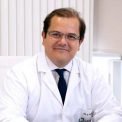Huntington's disease is an inherited pathology characterised by onset mainly in adulthood, often after the patient has already had offspring (the disease does not affect fertility). In general, the time of onset is earlier depending on the generations in which the disease has been present.
the disease has occurred. This means that if the father has the disease and the child has inherited it, the child will tend to debut at a younger age than the father.
It is therefore very common that when a person is diagnosed with the disease, he or she already has offspring, so this question usually arises for second generation members or more, who are considering having
offspring.
In this case, it is possible to carry out an In Vitro Fertilisation treatment, with the consequent obtaining of embryos and subsequently carry out a Genetic Diagnosis for this disease, discarding those embryos that are ill and
transferring only the healthy ones. This method is very effective in preventing the baby from suffering from the disease, although the probability of pregnancy will depend on other usual parameters in In Vitro Fertilisation, such as the age of the future mother, the number of oocytes, the quality of the oocytes and the spermatozoa.
Of course, another possibility is to use donated gametes, which will eliminate the risk of disease.
Huntington's disease is one of the paradigms in terms of a person's right not to know the results of their genetic tests, whatever they may be. Because the disease is severe, and usually debuts in adulthood, a direct relative of an affected person may not want to know if he or she might develop the disease in the future, yet may want to ensure that his or her descendant has the right to know if he or she will develop the disease in the future.
However, they want to be sure that their offspring will be healthy.
In these cases, it is essential for the genetic diagnosis to study the patient with the possibility of being a carrier of the disease, although the patient may request not to know the result. In this case, an In Vitro Fertilisation with or without genetic diagnosis will be carried out later, depending on whether the patient is a carrier, although in order to safeguard the patient's wish not to know his or her possible carrier status, the genetic diagnosis will be simulated if it is not necessary. In fact, this specific information is usually withheld by the laboratory also from the couple's doctor to avoid leaks.
The aim is that the couple can carry out their treatment, ensuring the absence of disease in their offspring, but without the fact of having been treated revealing information about the patient's carrier status without their consent, in one way or another.
